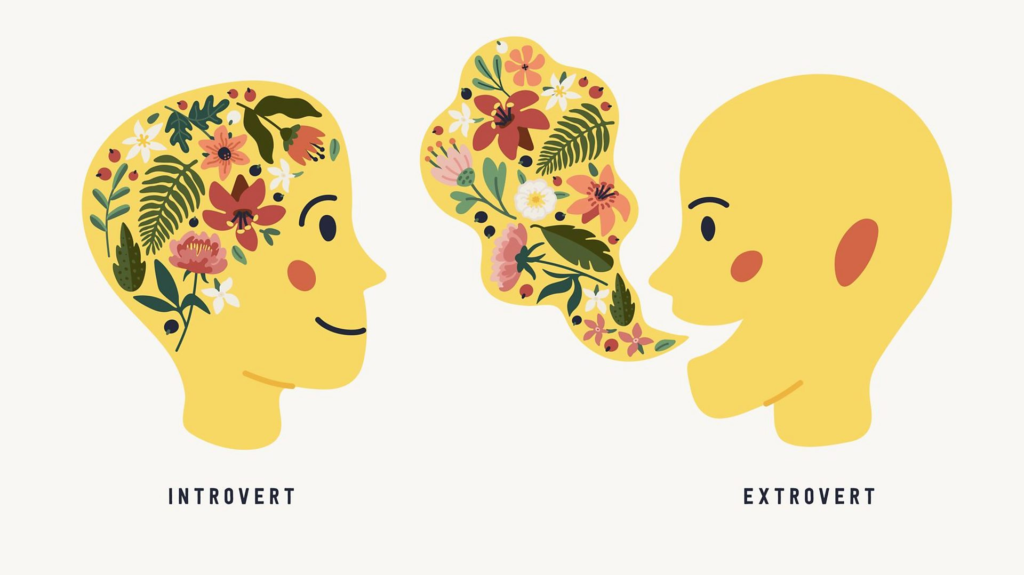The Power of Introverts: Embracing the Quiet Strength Within

In a world that often glorifies extroversion, introverts can sometimes feel overshadowed by the more outgoing and gregarious personalities around them. However, introverts possess a unique set of qualities and strengths that make them invaluable in both personal and professional settings. This in-depth exploration of introversion will shed light on what it means to be an introvert, the misconceptions surrounding introversion, and how introverts can harness their quiet power to thrive in various aspects of life.
Understanding Introversion

What is Introversion?
Introversion is a personality trait that is characterized by a preference for quiet, minimally stimulating environments. Introverts tend to feel more energized by spending time alone or in small groups rather than in large, noisy gatherings. This doesn’t mean that introverts are antisocial or shy; rather, they simply have a different way of processing the world around them.
Introverts often enjoy deep conversations and meaningful connections, and they may feel drained after extended periods of social interaction. This need for solitude is not a sign of weakness but a way for introverts to recharge their mental and emotional batteries.
Common Misconceptions About Introverts
There are several misconceptions about introverts that can lead to misunderstandings and unfair judgments. One of the most common is that introverts are shy or socially anxious. While some introverts may experience shyness, the two traits are not synonymous. Shyness is a fear of social judgment, while introversion is a preference for less stimulating environments.
Another misconception is that introverts don’t enjoy socializing or are not good at it. In reality, many introverts are excellent communicators and enjoy social interactions, especially in one-on-one settings or small groups where they can engage in deeper, more meaningful conversations.
The Strengths of Introverts

Deep Thinkers and Problem Solvers
Introverts are often deep thinkers who enjoy reflecting on ideas and concepts before taking action. This thoughtful approach can make them excellent problem solvers, as they consider all aspects of a situation before making decisions. Their ability to think critically and analyze situations from multiple angles is a significant strength, particularly in complex or high-stakes environments.
Great Listeners and Observers
One of the most valuable traits of introverts is their ability to listen attentively. Introverts often prefer to listen rather than speak, which allows them to pick up on subtle cues and details that others might miss. This skill makes them excellent observers and empathetic listeners, which can be incredibly beneficial in both personal and professional relationships.
Focused and Independent Workers
Introverts tend to work well independently and are often highly focused on their tasks. They thrive in environments where they can concentrate without constant interruptions. This focus and independence make introverts well-suited for roles that require deep concentration, such as writing, research, analysis, and creative work.
Empathy and Emotional Intelligence
Introverts are often highly empathetic and possess strong emotional intelligence. Their preference for deep, meaningful connections allows them to understand and relate to the emotions of others on a profound level. This empathy can make introverts excellent leaders, mentors, and caregivers, as they are attuned to the needs and feelings of those around them.
Challenges Faced by Introverts

Navigating a World Built for Extroverts
One of the biggest challenges introverts face is navigating a world that often values extroversion. Many social, educational, and professional environments are designed with extroverted personalities in mind, which can make introverts feel out of place or undervalued. For example, open office spaces, group projects, and networking events can be particularly draining for introverts.
Overcoming Stereotypes and Misunderstandings
Introverts often have to deal with stereotypes that paint them as aloof, antisocial, or lacking in confidence. These misconceptions can lead to misunderstandings in both personal and professional settings. For example, an introvert’s preference for solitude may be misinterpreted as a lack of interest in socializing, when in reality, they simply need time to recharge.
Finding Balance Between Solitude and Social Interaction
While introverts generally prefer solitude, it’s important for them to find a balance between alone time and social interaction. Too much isolation can lead to feelings of loneliness or disconnection, while too much socializing can lead to burnout. Finding the right balance is key to maintaining mental and emotional well-being.
Tips for Thriving as an Introvert
Embrace Your Introversion
The first step to thriving as an introvert is to embrace your personality and understand that introversion is not a flaw, but a strength. Recognize the unique qualities you bring to the table and don’t feel pressured to conform to extroverted norms. Instead, focus on leveraging your strengths, such as deep thinking, empathy, and focus.
Create a Supportive Environment
Creating an environment that supports your introverted nature is crucial to your well-being. This might mean setting boundaries around your social interactions, creating a quiet workspace, or scheduling regular alone time to recharge. Don’t be afraid to communicate your needs to those around you, whether it’s asking for a quiet space to work or explaining your preference for smaller gatherings.
Leverage Your Strengths in the Workplace
In the workplace, introverts can thrive by leveraging their strengths in areas such as deep work, independent projects, and one-on-one interactions. Seek out roles or tasks that align with your strengths, and don’t be afraid to advocate for yourself. For example, if you excel at writing or research, highlight these skills to your employer and seek out opportunities to contribute in these areas.
Practice Mindful Socializing
While socializing can be draining for introverts, it’s also an important part of life. Practice mindful socializing by choosing quality over quantity when it comes to your social interactions. Focus on building deep, meaningful relationships with a few close friends rather than spreading yourself too thin. Additionally, make sure to schedule downtime after social events to recharge.
Develop Communication Skills
Introverts often prefer written communication or one-on-one conversations over large group discussions. However, developing strong communication skills is important for both personal and professional success. Practice articulating your thoughts clearly and confidently, and don’t be afraid to speak up when you have something valuable to contribute. Remember, your voice matters, and your perspective is important.
The Introvert-Extrovert Spectrum

Understanding the Spectrum
It’s important to recognize that introversion and extroversion exist on a spectrum. Most people are not purely introverted or extroverted but fall somewhere in between. This means that even if you identify as an introvert, you may still have some extroverted tendencies, and vice versa.
Ambiverts: The Best of Both Worlds
Ambiverts are individuals who have a balanced mix of introverted and extroverted traits. They can adapt to different situations by drawing on both introverted and extroverted qualities. Ambiverts often have the advantage of being able to thrive in a wide range of environments, from quiet, solitary work to lively social gatherings.
Finding Your Place on the Spectrum
Understanding where you fall on the introvert-extrovert spectrum can help you better understand your needs and preferences. It can also help you navigate social and professional situations more effectively. For example, if you lean more towards introversion, you might prioritize quiet, focused work, while an ambivert might seek out a mix of independent and collaborative tasks.
Celebrating the Power of Introverts

Introverts in History and Culture
Throughout history, many successful individuals have identified as introverts. From renowned scientists like Albert Einstein to beloved authors like J.K. Rowling, introverts have made significant contributions to society. These individuals demonstrate that introversion is not a barrier to success but can be a powerful driving force behind creativity, innovation, and leadership.
The Importance of Diversity in Personality Types
In any group or organization, having a diversity of personality types is crucial to success. Introverts bring unique perspectives and strengths that complement those of their extroverted counterparts. By valuing and embracing this diversity, we can create more inclusive and effective environments where everyone’s contributions are recognized and appreciated.
The Future of Introversion
As society becomes more aware of the importance of mental health and well-being, there is a growing recognition of the value of introversion. The rise of remote work, the increasing focus on work-life balance, and the growing appreciation for deep, meaningful connections are all positive trends for introverts. In the future, we can expect to see more environments and opportunities that cater to and celebrate introverted individuals.
Introverts are often underestimated in a world that tends to value extroversion. However, the strengths of introverts—such as deep thinking, empathy, focus, and independence—make them invaluable contributors to society. By understanding and embracing their introverted nature, introverts can thrive in both personal and professional settings. It’s time to celebrate the quiet strength of introverts and recognize the unique power they bring to the world.
